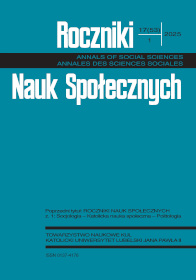Public Opinion in the Era of Post-Rationalism: The Role of Social Media
Public Opinion in the Era of Post-Rationalism: The Role of Social Media
Author(s): Robert SzwedSubject(s): Social Sciences, Media studies, Communication studies, Theory of Communication
Published by: Towarzystwo Naukowe KUL & Katolicki Uniwersytet Lubelski Jana Pawła II
Keywords: post-rationalism; social knowledge; social media; epistemic trust
Summary/Abstract: This article diagnoses the origins and mechanisms of the emergence of post-rational attitudes in society. It points to social media as one of the most important agents of their proliferation. Confused public opinion cannot rely on social media, where messages are increasingly created and promoted to maximize their audience’s attention by evoking emotions and tailoring messages to users’ pre-identified preferences. Experts and scientists could play an essential role in resolving the veracity of findings, but they, along with other public institutions, are losing public trust. In this situation, the messages of pseudoscience promoters and post-truth spreaders have equal value in public space to the deliberations of scientists and experts. As a result, social media contribute to forming opinions based not on facts and scientific evidence but on emotions, intuition, and subjective beliefs. The spread of such views leads to the fragmentation of society, polarization, social conflicts, and, ultimately, the weakening of democracy. The solution may be to build epistemic trust at individual, social, and institutional levels.
Journal: Roczniki Nauk Społecznych
- Issue Year: 53/2025
- Issue No: 1
- Page Range: 61-76
- Page Count: 16
- Language: English

